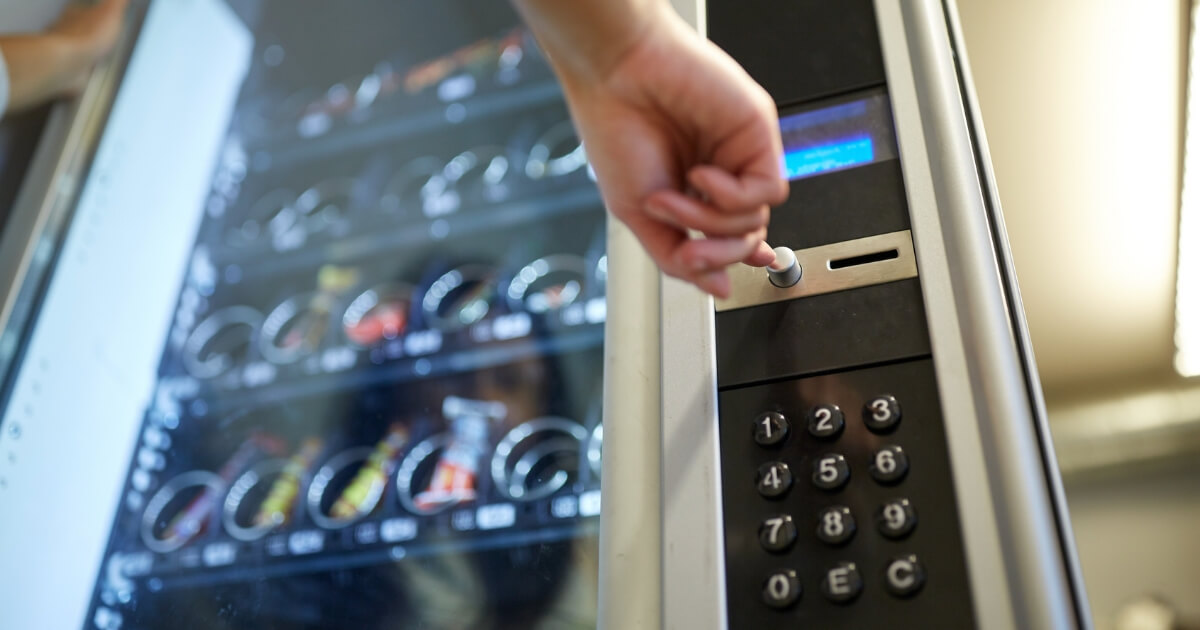
Ivy League School Selling Abortion Drugs to Students in Vending Machines
There is an infamous sketch comedy show called “Turn-On” aired by ABC that only aired for one episode, in February of 1969. The show was supposedly so profoundly unfunny and tried so hard to break taboos that the legend goes it was actually cancelled while it was on the air; one major affiliate allegedly refused to return after the first commercial break.
Given that this was before the age of the VCR, much less the DVR, there’s a lot of controversy about just what the show was about. One of the sketches that was so taboo in 1969 — part of a show so horrible that it literally got yanked off the air in some markets while it was on the air and was described by some station executives as “just plain dirty” — involved a birth control pill vending machine with a young woman desperately pulling at the lever.
Pfft. You think that’s bad, an Ivy League school is going to be selling abortion drugs from vending machines pretty soon. Bad taste evolves, I suppose — and it’s not funny now, either.
According to the Yale Daily News, a machine dispensing “Plan B” contraception — which prevents a fertilized egg from implanting in the womb — will be available to students in one of the residential colleges.
“A new 24/7 ‘wellness to-go’ vending machine will soon sell emergency contraception, as well as other over-the-counter medications, condoms and lube,” the Daily News reports. “The machine will be installed in Silliman’s Good Life Center before winter break.”
“The point of this is to make Plan B more accessible and to make medications in general more accessible,” Ileana Valdez, a Yale College Council representative who pushed for the machine to be installed, said.
“Hopefully this will set a precedent for more machines to show up around campus that contain other things so Yale students don’t have to go out of their way to go to CVS, especially students from the new colleges.”
They also reported that “Grace Cheung … who first proposed the idea of a Plan B vending machine last fall, emphasized that unprotected sex frequently occurs on campus and purchasing emergency contraception can be an inconvenient and ‘humiliating process.'”
Yes, there’s nothing humiliating at all about lining up at a vending machine to get Plan B — which, by the way, students can get free at the university health center any hour of the day.
Plan B has always been controversial. As Michael Knowles over at the Daily Wire notes, “Plan B’s defenders insist the drug does not induce abortions but rather merely prevents pregnancy. While that is true much of the time, if Plan B is taken during the two-day window after a surge of luteinizing hormones prepares the ovary to release an egg, a pregnancy may occur, but the ovary will not produce enough progesterone to allow the embryo to survive, an incident known as luteal-phase defect.”
So, yes, Plan B is, no matter your beliefs on when life begins, an abortion-inducing drug. As for the method of delivery, I can’t think of something that’s more demeaning than a vending machine dispensing it, particularly given it can be obtained free by Yale students.
At some point, we must as a culture ask ourselves how we approach the issue of life.
At the Daily Wire, Knowles brought up the paradox of the “safe, legal and rare” line on abortion; if there’s an issue involving legality, then there should be questions about its legality, whereas if there’s no moral issue there’s no reason why it should be rare.
There’s a deeper issue at play here, however, which is the vulgarization of serious issues of life. Let’s please not pretend that the moral implications of Plan B are settled; while I’m under no misapprehension that we’ll see it banned anytime soon, the morning-after pill presents major bioethical issues.
Yet, as Knowles also points out, Plan B vending machines aren’t a new thing on college campuses — Brandeis, Pomoma College, Stanford, University of California Davis and University of California Santa Barbara have all installed similar machines, even though students pretty much have easy access to these drugs already.
The message isn’t that this makes things easier. The message is normalization. The message is that if you have questions about the bioethical issues presented by Plan B, well, you’re on the losing side of history. If acknowledging the touchy nature of this leads to a “humiliating process,” I can think of one very easy way both parties to this problem could prevent it.
Like it or not, almost 50 years after “Turn-On,” the concept of the contraception vending machine still isn’t much funnier, particularly when the contraception involved could end human life.
Truth and Accuracy
We are committed to truth and accuracy in all of our journalism. Read our editorial standards.
Advertise with The Western Journal and reach millions of highly engaged readers, while supporting our work. Advertise Today.












